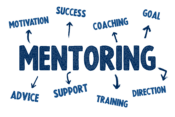
The Importance of Networking for Learning and Growth
The first time I went to a networking event, it was because the main speaker was someone I knew in person, and she made me promise to attend. At first, I didn’t really want to go. I had always thought networking events were just about people giving out business cards and talking about things that didn’t really matter. It didn’t seem like something that could help me grow, or so I thought.
But, as I promised, I showed up. When I walked into the room during the breakout session, I felt a bit nervous. Everyone seemed to already know each other, and I felt out of place. I stood near the refreshment table, unsure of what to do. The room felt crowded, and I didn’t know how to start a conversation with anyone.
Then someone walked up to me and introduced herself. She greeted me with a smile and introduced me to some of the people around her. One of them was an entrepreneur who had just started a tech company. We had a quick chat, and he invited me to work on a project with him that was exactly what I had been looking for. We exchanged contact information, and I left the event feeling excited about the new opportunity.
I realized networking wasn’t just about collecting names or handing out business cards. It was about having real conversations, making connections, and learning from others. After that, I started to see networking as a chance to grow, learn, and work together with others in ways I hadn’t imagined before.
The Power of Networking: An Underestimated Tool for Learning and Growth
Networking is often misunderstood as a transactional activity where you collect contacts in hopes of leveraging them for job opportunities or business gains. However, networking is much more profound and far-reaching than that. At its core, networking is about cultivating relationships, learning from others, and growing in ways that you never anticipated.
- Networking Fosters Continuous Learning
One of the most powerful aspects of networking is its ability to expose you to new ideas, perspectives, and ways of thinking. According to research by Harvard Business Review, individuals who are well-connected tend to be better at problem-solving and decision-making. When you network with people from different industries, backgrounds, or skill sets, you are continually learning about best practices, emerging trends, and valuable insights that are outside your immediate experience.
For instance, consider the advice I received from that gentleman at the airport. Although our conversation started on a trivial note, it quickly became a valuable lesson in personal branding and how the ability to communicate effectively is just as important as technical expertise. I hadn’t realized the immense value in connecting with someone beyond the professional setting, and how much I could learn from even the most unexpected conversations.
Networking allows us to step outside of our comfort zones and gain knowledge from people who may have years of experience or specialized expertise. It encourages us to engage in discussions that stimulate creativity and broaden our understanding of complex issues.
- Networking Expands Career Opportunities
Networking is one of the most effective ways to open up new career opportunities. According to Forbes, 85% of jobs are filled through networking. This statistic highlights the importance of maintaining a strong professional network. As I look back on my career, many of the opportunities I received—whether a new project, a promotion, or even a job offer—came about because of connections I made along the way.
Consider how networking could affect your own career. Suppose you’re working in marketing and you’re looking to branch out into sales or product management. Networking can help you identify potential mentors, job openings, or even collaborative projects that will help you gain experience in new areas. Networking is about visibility, and when people know who you are and what you bring to the table, opportunities will start to flow your way naturally.
A great example is the professional networks on LinkedIn. Studies show that LinkedIn users with a larger network are more likely to receive job opportunities and career advice. Regularly engaging with your network by sharing insights or asking for advice can lead to mentorship, job referrals, and even partnerships.
- Networking Builds Your Confidence and Soft Skills
Another underrated benefit of networking is the development of your confidence and interpersonal skills. Making connections with professionals can push you to refine your communication skills, learn how to adapt to different social situations, and become more confident in presenting your ideas.
An article by Inc. discusses how successful people often attribute their achievements to the development of strong communication skills through networking. When you regularly engage with others, whether in a formal or informal setting, you’re practicing speaking clearly, listening actively, and negotiating effectively—all of which are vital skills that help with both personal and professional growth.
For example, when I first began attending industry events, I was extremely shy about networking. But over time, as I connected with more people, I realized that networking wasn’t about “selling” myself, but rather about finding common ground and engaging in meaningful conversations. By interacting with a diverse group of individuals, I gradually built my confidence, and these interactions gave me the opportunity to practice my social and negotiation skills.
- Networking Offers Support and Guidance
Networking can also provide much-needed emotional support and mentorship, especially in challenging times. Many people I’ve met through networking have become trusted advisors who provide valuable insights and guidance in tough situations.
The Journal of Vocational Behavior published research indicating that professionals who have strong networks are better equipped to navigate setbacks and career transitions. Whether you are dealing with a job loss, a project failure, or a personal challenge, your network can provide advice, encouragement, and sometimes even job leads.
In my experience, when I’ve faced tough decisions or challenges in my career, the people I’ve met through networking have been a source of invaluable support. Their advice often helped me take a step back, reassess my situation, and come up with strategies that I wouldn’t have considered on my own.
- Networking Creates a Platform for Collaboration
Finally, networking fosters collaboration. Building relationships with others in your field opens up opportunities for joint ventures, partnerships, and collaborative projects. Many successful businesses and startups were born from a network of people who shared similar values, goals, and expertise.
An article in Entrepreneur explains how collaboration through networking can accelerate business growth, citing examples of companies that have leveraged their networks to create groundbreaking products and services. Networking allows you to find individuals who complement your strengths and skills, creating a team capable of tackling projects in innovative ways.
When I started my own project at work, I was able to collaborate with someone I met through a conference, and together, we achieved results that were far greater than if we had worked separately. Networking isn’t just about connecting with others; it’s about forming partnerships that can enhance your ability to achieve your goals.
Effective Networking Strategies
- Attend Industry Events: Conferences, workshops, and seminars are excellent opportunities to meet new people and learn about industry trends.
- Join Professional Organizations: Membership in professional organizations can connect you with like-minded individuals and provide networking opportunities.
- Leverage Social Media: Platforms like LinkedIn, Twitter, and Facebook can help you connect with people from all over the world.
- Volunteer: Volunteering can help you meet new people, develop new skills, and give back to your community.
- Attend Alumni Events: If you’re an alumnus of a university or college, attend alumni events to reconnect with former classmates and professors.
Building Strong Relationships
- Be Genuine: Authenticity is key to building lasting relationships.
- Be a Good Listener: Actively listen to what others have to say and show genuine interest.
- Follow Up: After meeting someone new, follow up with a thank-you note or email.
- Give Back: Help others whenever you can, whether it’s offering advice or introducing them to someone in your network.
- Stay in Touch: Maintain relationships by regularly checking in with your network.
Overcoming Networking Anxiety
- Practice Active Listening: Focus on the conversation and ask thoughtful questions.
- Start Small: Begin by networking with people you already know, such as colleagues and classmates.
- Set Realistic Goals: Don’t expect to become best friends with everyone you meet.
- Embrace Failure: Don’t be afraid to make mistakes.
- Visualize Success: Imagine yourself confidently networking with others.
The Role of Technology in Networking
In today’s digital age, technology has transformed the way we network. Online platforms and tools have made it easier to connect with people from all over the world. However, it’s important to remember that technology is a tool, not a replacement for face-to-face interactions.
Conclusion: Making Networking Work for You
Networking is not just about collecting business cards or growing your LinkedIn connections—it’s about creating relationships that foster learning, growth, and collaboration. From gaining knowledge and skills to accessing new opportunities and building confidence, networking is a vital tool in any professional’s journey. So, the next time you find yourself at a networking event or even in an unexpected situation, remember that every conversation holds potential to shape your future.
Start thinking of networking as an ongoing process, not a one-time event. Stay open to new connections, and be willing to learn from every interaction. Whether it’s through formal events, casual conversations, or social media interactions, the people you meet will play an integral role in your growth.
References
- Harvard Business Review, “The Power of Networking.”
- Forbes, “Why Networking is Essential to Career Success.”
- Inc., “How Successful People Build Strong Networks.”
- Journal of Vocational Behavior, “Networking and Career Success.”
- Entrepreneur, “Collaborating Through Networking to Drive Business Growth.”












